World Leaders' Worries
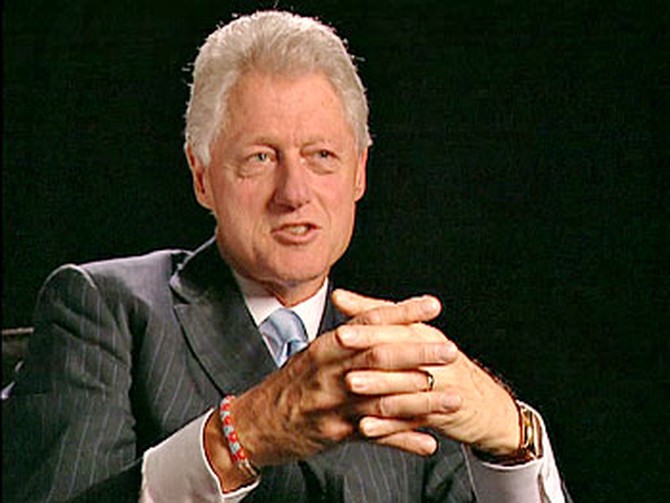
Former President Bill Clinton
In September 2005, American and foreign leaders gathered in New York at the Clinton Global Initiative Conference to discuss the biggest issues facing our world.
What do they think we should be worried about?
Former president Bill Clinton thinks Americans should be concerned about foreign policy issues, and, more importantly, bringing the citizens of the world together.
"In the short run, you should be worried about foreign policy challenges," Clinton says. "Will North Korea or Iran become nuclear powers? Will biological weapons get out? Will terror again strike within the United States or in the UK or our allies?"
"Over the long run, you should worry about building a world that's coming together instead of coming apart—and that starts with America," he says. "We need to become citizens of the world in a positive way. We should all say, 'Okay, we're going to support good things for our country. But whatever I can afford, I'm going to help somebody halfway around the world. Just like I did in the tsunami, and just like they did for us in Katrina.' We need to behave that way all the time. We have to understand we're all bound up together. We're going up or down together whether we like it or not, so it might as well be up."
What do they think we should be worried about?
Former president Bill Clinton thinks Americans should be concerned about foreign policy issues, and, more importantly, bringing the citizens of the world together.
"In the short run, you should be worried about foreign policy challenges," Clinton says. "Will North Korea or Iran become nuclear powers? Will biological weapons get out? Will terror again strike within the United States or in the UK or our allies?"
"Over the long run, you should worry about building a world that's coming together instead of coming apart—and that starts with America," he says. "We need to become citizens of the world in a positive way. We should all say, 'Okay, we're going to support good things for our country. But whatever I can afford, I'm going to help somebody halfway around the world. Just like I did in the tsunami, and just like they did for us in Katrina.' We need to behave that way all the time. We have to understand we're all bound up together. We're going up or down together whether we like it or not, so it might as well be up."
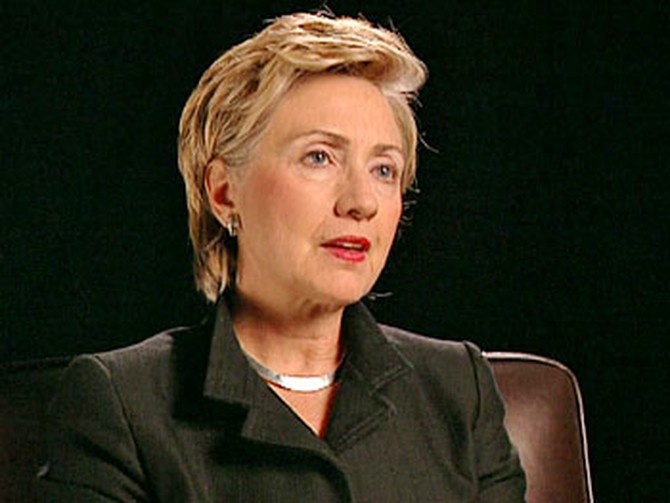
Senator Hillary Clinton
New York Senator Hillary Clinton shares her husband's global perspective.
"Right now the greatest threat to world peace is intolerance cloaked in religion," Senator Clinton says. "It's people who believe that their religious views are the only right ones, and therefore, any means that is available to them—including flying planes into towers or planting bombs in subways—that somehow they are permitted to do that because they're acting in the name of a religion. That gives them the justification to wreak havoc and violence."
The Senator stresses that we must still continue to have open minds when it comes to our views of people around the world. "Not that we are going to give up what we believe, but in the complex world in which we live, we have to recognize that not everybody will see the world the same way."
Despite the challenges our nation faces today, Senator Clinton believes it is an exciting time to be a woman in America. "But to those to whom much is given, much is expected," she says. "So as American women, I think we have a special obligation to vote. Let your voice be heard. A citizen always wins because you've participated."
"Right now the greatest threat to world peace is intolerance cloaked in religion," Senator Clinton says. "It's people who believe that their religious views are the only right ones, and therefore, any means that is available to them—including flying planes into towers or planting bombs in subways—that somehow they are permitted to do that because they're acting in the name of a religion. That gives them the justification to wreak havoc and violence."
The Senator stresses that we must still continue to have open minds when it comes to our views of people around the world. "Not that we are going to give up what we believe, but in the complex world in which we live, we have to recognize that not everybody will see the world the same way."
Despite the challenges our nation faces today, Senator Clinton believes it is an exciting time to be a woman in America. "But to those to whom much is given, much is expected," she says. "So as American women, I think we have a special obligation to vote. Let your voice be heard. A citizen always wins because you've participated."
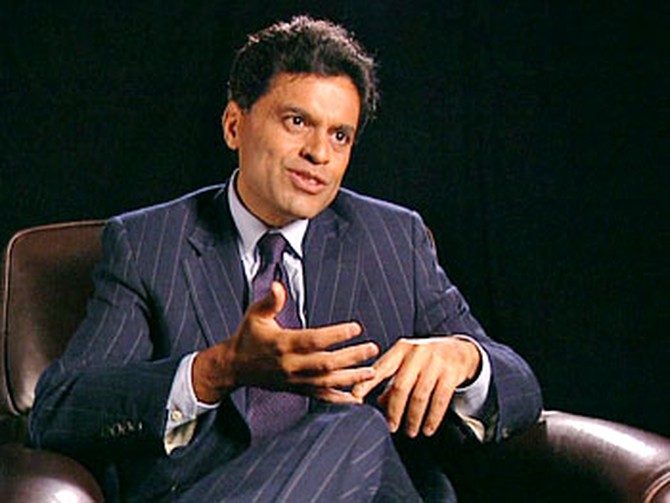
Newsweek Editor Fareed Zakaria
Fareed Zakaria, Newsweek magazine's international editor, isn't worried about nuclear weapons or terrorist cells. He's concerned about Americans' attitudes toward the rest of the world.
"We're the most powerful country in the world," Fareed says. "We have hundreds of thousands of troops occupying some countries, providing security guarantees to others, guarding sea lanes for others. We have this huge impact. But we're not terribly interested in the rest of the world. We sit on top of it, but we don't know much about it."
Fareed believes that Americans have a responsibility to educate themselves about what is going on in the world—because it will directly affect their lives.
"If we can get more engaged with the world, it will have one set of outcomes for the world," he says."But if we don't, and we find the only way we know how to engage with the world is through our military, it's going to have a very different set of outcomes for the world. If you don't get informed, your job is going to be affected by trends that you don't understand. Your job is going to be affected by forces you don't understand. Your children's future is going to be affected by forces that you don't understand."
"We're the most powerful country in the world," Fareed says. "We have hundreds of thousands of troops occupying some countries, providing security guarantees to others, guarding sea lanes for others. We have this huge impact. But we're not terribly interested in the rest of the world. We sit on top of it, but we don't know much about it."
Fareed believes that Americans have a responsibility to educate themselves about what is going on in the world—because it will directly affect their lives.
"If we can get more engaged with the world, it will have one set of outcomes for the world," he says."But if we don't, and we find the only way we know how to engage with the world is through our military, it's going to have a very different set of outcomes for the world. If you don't get informed, your job is going to be affected by trends that you don't understand. Your job is going to be affected by forces you don't understand. Your children's future is going to be affected by forces that you don't understand."
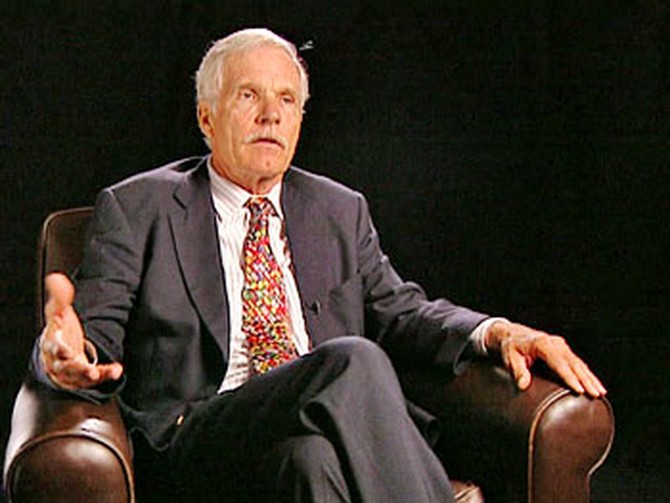
Business Mogul Ted Turner
Ted Turner, one of the most profitable businessmen in America, isn't afraid of an economic depression or plummeting stock prices. He says nuclear weapons top his list of fears.
"I think the most dangerous thing is the nuclear arsenals of Russia and the United States and the other nuclear countries," Ted says. "I think we need total nuclear disarmament as quickly as possible to avoid either an accident or a madman getting control of one of the buttons that would cause the extinction of humanity."
"I think the most dangerous thing is the nuclear arsenals of Russia and the United States and the other nuclear countries," Ted says. "I think we need total nuclear disarmament as quickly as possible to avoid either an accident or a madman getting control of one of the buttons that would cause the extinction of humanity."
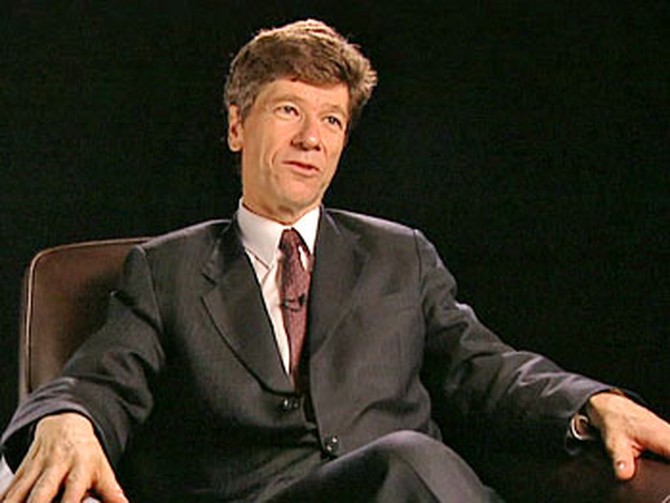
Global Economist Jeffrey Sachs
Franklin Roosevelt once said, "The only thing we have to fear is fear itself." Global economist Jeffrey Sachs agrees.
"I think that fear is by far the biggest risk factor on the planet," Jeffrey says. "The idea that 'I don't want to cooperate with that country. They're out to get us.' And this idea that it's us versus them and that we are without any means of solving it."
"We're just in direct conflict with some other part of the world, whether it's religious divide or ethnic divide or geographical divide or the divide of rich and poor," he says. "It's the fear that conflict is inevitable. That's actually the biggest risk we face, because violence and conflict with others can be a self-fulfilling prophecy. If you believe it's going to happen, they'll believe it's going to happen, everybody gets absolutely into hostilities and, sure enough, what everybody feared does happen."
"I think that fear is by far the biggest risk factor on the planet," Jeffrey says. "The idea that 'I don't want to cooperate with that country. They're out to get us.' And this idea that it's us versus them and that we are without any means of solving it."
"We're just in direct conflict with some other part of the world, whether it's religious divide or ethnic divide or geographical divide or the divide of rich and poor," he says. "It's the fear that conflict is inevitable. That's actually the biggest risk we face, because violence and conflict with others can be a self-fulfilling prophecy. If you believe it's going to happen, they'll believe it's going to happen, everybody gets absolutely into hostilities and, sure enough, what everybody feared does happen."
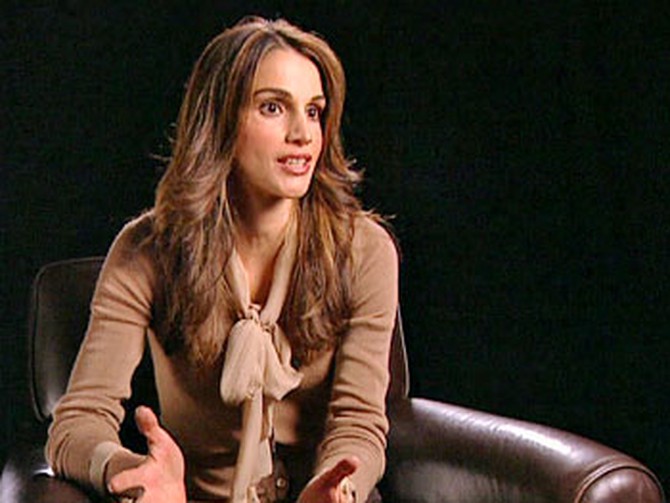
Queen Rania of Jordan
What worries Jordan's Queen Rania?
"I find that there is one overarching problem that's fundamental and that's common to all of the issues that we're facing today—that is the 'hope gap,'" Queen Rania says. "The gap between people who feel that if they work hard, they have a chance of bettering their lives, and those who actually feel that they are just condemned to a life of needlessness and hopelessness. A person who's hurting halfway around the globe, his pain is eventually going to affect me."
"I think it makes these people who feel that way more vulnerable to extremist views. They're easy to influence because they feel that they have nothing to live for and, therefore, nothing to lose. It's not enough to just tell people that there is light at the end of the tunnel, and it's not enough just to show them the life. We have to help them find their way towards that light, and I feel that education is a very powerful enabling tool to reach that."
"I find that there is one overarching problem that's fundamental and that's common to all of the issues that we're facing today—that is the 'hope gap,'" Queen Rania says. "The gap between people who feel that if they work hard, they have a chance of bettering their lives, and those who actually feel that they are just condemned to a life of needlessness and hopelessness. A person who's hurting halfway around the globe, his pain is eventually going to affect me."
"I think it makes these people who feel that way more vulnerable to extremist views. They're easy to influence because they feel that they have nothing to live for and, therefore, nothing to lose. It's not enough to just tell people that there is light at the end of the tunnel, and it's not enough just to show them the life. We have to help them find their way towards that light, and I feel that education is a very powerful enabling tool to reach that."
Published 01/23/2006

